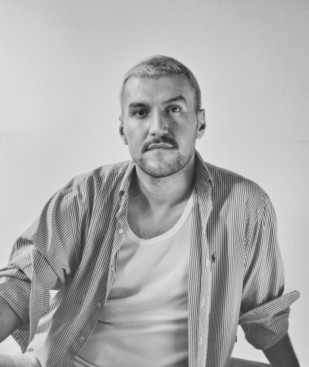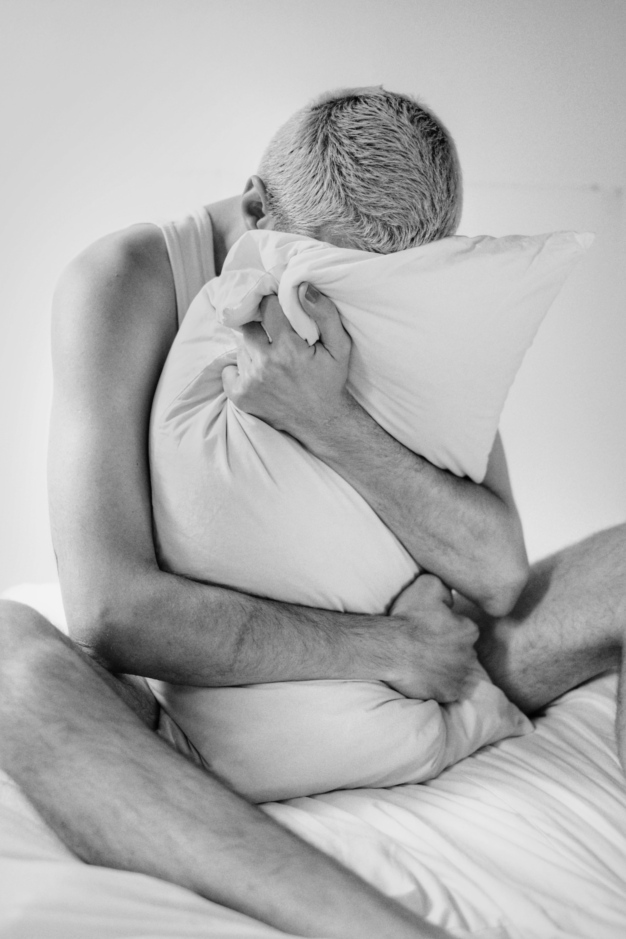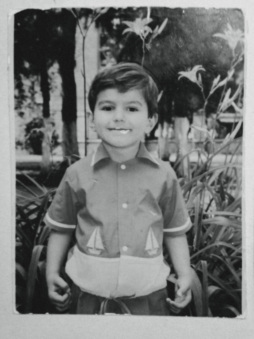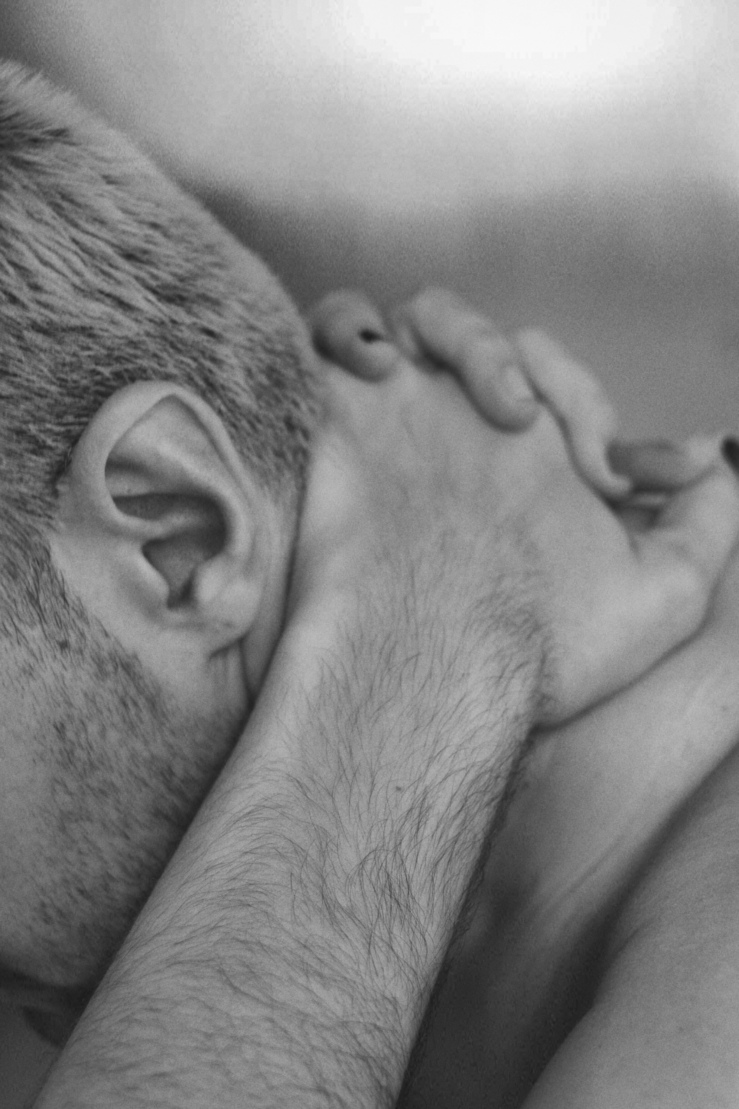INTRODUCTION LETTER
Hello, I am Mark Preston, founder of MAKE-IT-UP. I was born in Grozny, the capital of the Chechen Republic, in the Caucasus Mountains of southern Russia. The conservative Muslim region was not particularly famous outside of Russia—at least not until the mid-1990s when a vicious, ten-year war between Moscow and Grozny divided the small state and the rest of the country.
One of my earliest pre-war memories, though, was a ritual I had with my father. My father had started teaching me self-care when I turned five. But those lessons mostly concentrated on the simplest of things like washing my hair, brushing my teeth, and using cologne. So every other Saturday morning, we went to the barbershop for a fresh haircut. While getting their haircuts, men used to tackle current affairs and pass to each other cologne soaked in citrus notes and a light hint of bitter tangerine, with which the men washed their clean-shaven faces. It always stood as a "final touch." All these smells, mixed with the cigarettes that everyone smoked, have become imprinted in my memory as the essence of freedom.

This was a safe space for my father and me — and every man in there. In the rigid and traditional macho culture of Chechnya, the barbershops were the only places where no one judged Chechen men for taking time for themselves and their physical appearance. That changed with the war, when our men had to become warriors, maintaining a hyper-masculine facade 24/7. Showing love or emotions, even to your kids and family, was considered a sign of weakness. And weakness was shameful. This also dictated the way men dressed: mostly in black, with only a permitted touch of modest color. During the hot summers, beige linen was allowed.
It was during one of those summers, when I was ten years old, that I learned quite a lesson about fashion and masculinity in my homeland. It was my cousin’s wedding. Weddings are a big social event in the Chechen Republic. Marrying well is central to the social fabric of Chechnya, and weddings are an important status symbol. They’re also places where parents can find a match for their child and negotiate a future arranged wedding. All guests have to look their very, very best. This is especially the case for younger women: at the wedding, a man might invite them for a traditional dance. If the woman is "lucky", such dances may end with a marriage proposal.
On the day of my cousin’s wedding, my mother gave me some money and sent me to the local market for a new shirt. As a representative of my family, I too had to look my best. I spent hours wandering the market, trying to find the perfect shirt. (Back then, because I was so shy and so mesmerized by fashion merchandise, I could not even ask about the prices!) Then I found it, a beautiful lace-up V-neck shirt with many little stripes in all shades of blue. It seemed perfect in every possible way; even its price helped me save some change. I arrived at the wedding feeling confident and beautiful. My new perfect shirt was half-tucked into slim-fit black jeans, the ensemble completed by polished leather sandals. The sunset was bright and vivid. I was chatting with some boys when my mother came our way. With great pride, I put a hand in my pocket to give her the change. But she did not care about it. She grabbed me by the sleeve of my perfect shirt and pushed me against the sun-warmed brick wall. Then she started yelling: "What did you buy? Look at yourself! You can’t even dress like a normal person!" She was upset because I wasn’t looking "traditionally" formal as she expected me to be. Sweat was running down my back, and I went red with shame.


When she left, I ran away from the wedding to my grandmother’s house. All I wanted was to hide under her sewing desk. My grandmother made and sold dresses, and I sometimes helped her with simple tasks, like making patterns and cutouts. Her house was the only space where I felt safe, where I could be vulnerable and creative, and to indulge my interest in fashion. I learned my lesson: I never wore that shirt again. After a couple of weeks, my mother cut it into rags that she used for cleaning the dinner table. It was a daily reminder of the shame I had caused her.
Four years later, I left Chechnya to get my education. I enrolled in college when I was fourteen and became financially independent at eighteen. In my early twenties, I moved to Moscow, where I turned my childhood trauma into a career in fashion. The years spent in the Russian capital helped me sharpen my style and knowledge. I worked as a visual merchandiser and a stylist for department stores and magazines. I started a blog about fashion and travel, which became a must-read among Moscow’s hipsters and fashionistas. I began working with some of fashion’s most iconic brands, like Tommy Hilfiger, Louis Vuitton, and Christian Louboutin. I became an independent creative consultant, working with l’Oreal, Estée Lauder, Tom Ford Beauty, and TSUM—Europe’s largest department store.

"REAL MEN DRESS HOWEVER THEY WANT TO DRESS. REAL MEN CHALLENGE IDEAS OF WHAT IS "NORMAL." REAL MEN ARE TRUE TO THEMSELVES, NO MATTER WHAT"
My curiosity and appetite for new experiences made me follow bigger dreams. I moved to New York, the city where I finally became my true self. It has been so liberating. I can finally show the world who I am without having to worry about shaming my family or violating rigid ideas of how a "real" man looks. Real men dress however they want to dress. Real men challenge ideas of what is "normal." Real men are true to themselves, no matter what.
That is why I have launched MAKE-IT-UP — a platform for men trying to find their unique masculine identity at a time when ideas of masculinity are changing and expanding as never before. Here, we can talk about self-care and beauty without prejudice or judgment. Think of it as a safe space where you can test new ideas, ask questions, get advice from leading experts in the beauty industry, find inspiration, express yourself, and be vulnerable. It is a place of liberation—mine and yours. I don’t have to hide under my grandma’s sewing desk anymore. Neither do you.
Welcome to your tribe. Welcome to MAKE-IT-UP!
MP

